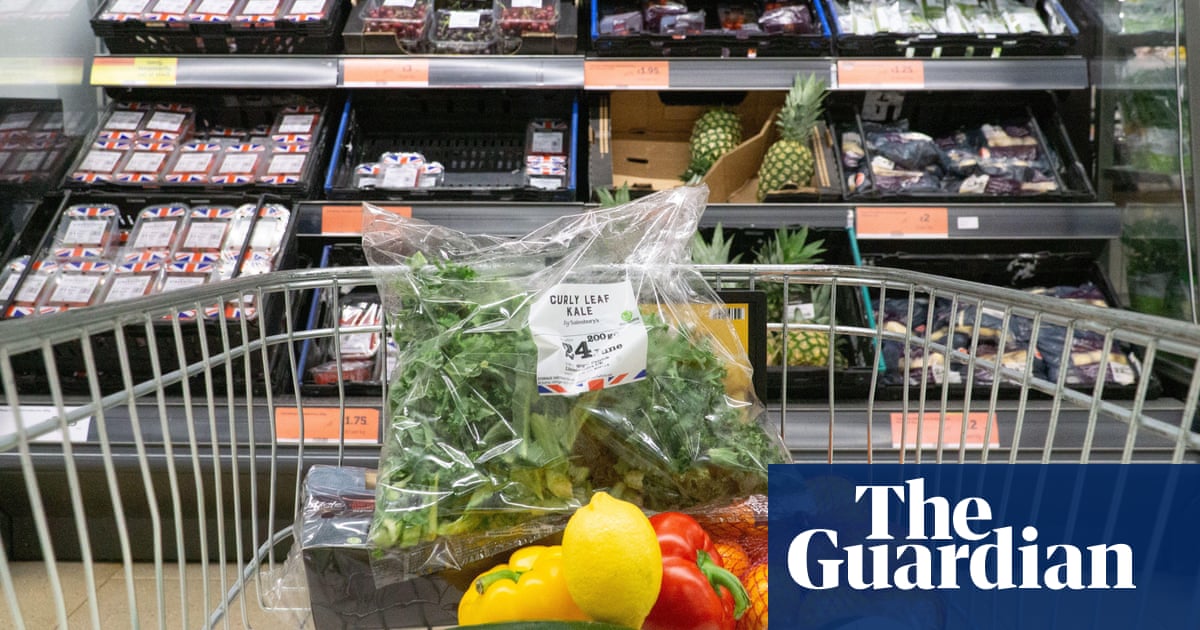Pharmaceutical companies in the EU have warned of a “risk of exodus” to the US as stocks in the sector slid around the world on the back of Donald Trump’s renewed threat to impose tariffs on US drugs imports.
Drugmakers’ shares across Europe and India, another foreign drugs hub, slipped on Wednesday after Trump indicated further carnage was on the way in addition to the 20% “reciprocal tariffs” on imports that kicked in overnight.
A basket of European healthcare stocks fell 3.9% after opening to its lowest since October 2022, leading losses among sectoral indices on the region-wide Stoxx 600, down 2.3% in early trading on Wednesday. Shares in AstraZeneca were down more than 5%, GSK more than 4%, Roche 5.6% and Sanofi was also down more than 5%.
There was also a hit in India, where companies such as Teva are among the world’s biggest medicine manufacturers making everything from branded paracetamol to active ingredients in pharmaceutical products through manufacturing contracts with some of the world’s biggest brands.
Trump imposed fresh tariffs on imports from 57 countries and territories at midnight US eastern time, including a 20% levy on goods from the EU’s 27 member states, 104% on China and 27% on India. These followed 10% tariffs on imports from all countries imposed last Friday.
Pharmaceuticals have so far been exempted from the levies, but on Tuesday evening the US president told an event at the National Republican Congressional Committee that he would announce a large tariff on drugs imports “very shortly”.
Trump claimed the tariff would incentivise drug companies to move their operations to the US, but has not said when and by how much he plans to raise the levy.
EU pharma firms have called on the European Commission president, Ursula von der Leyen, to push for “rapid and radical action” to mitigate the “risk of exodus” to the US after a meeting in Brussels.
The industry trade lobby the European Federation of Pharmaceutical Industries and Associations (EFPIA), whose members including Bayer, Novartis, and Novo Nordisk, the maker of the star diabetes type 2 drug Ozempic, met von der Leyen on Tuesday hours before Trump issued his fresh threat.
Other members include Pfizer, Lilly, Gilead, GSK, Teva and Merck, together representing billions of exports to the US.
Trump’s latest comments have intensified the trepidation felt in pharma manufacturing hubs around Europe including Ireland, which exported €44bn of pharmaceuticals to the US in 2024, much of it made by US multinationals Trump wants to repatriate.
“We’re going to tariff our pharmaceuticals and once we do that they are going to come rushing back into our country because we are the big market, the advantages we have over everybody is that we’re the big market,” the US president said at an evening speech to Republican supporters.
“So we’re going to be announcing very shortly a major tariff on pharmaceuticals.”
The pharma industry in the EU has remained silent on the threat of tariffs since Trump’s “liberation day”.
after newsletter promotion
EFPIA’s first statement, titled “Pharma CEOs alert president von der Leyen to risk of exodus to the US,” said that “unless Europe delivers rapid, radical policy change then pharmaceutical research, development and manufacturing is increasingly likely to be directed towards the US”.
It said a survey of its members last week showed that capital expenditure, money pumped into manufacturing plants, and R&D were the frontline risks.
According to the association, €164.8bn is planned by pharma companies in the EU between 2025 and 2029.
“Over the next three months, companies that responded estimate that a total of €16.5bn, ie 10% of the total investment plans, is at risk,” it said.
It added that the US was becoming a clear favourite for investment, with tariffs expediting that potentially, putting at risk hundreds of thousands of jobs.
“The US now leads Europe on every investor metric from availability of capital, intellectual property, speed of approval to rewards for innovation. Now with the addition of tariffs, there is little incentive to invest in the EU and significant drivers to relocate to the US.”
The association presented von der Leyen with a five-point plan, including strengthening incentives to locate intellectual property in Europe and the adoption of a worldwide set of rules to make it more attractive to place innovation and research and development in Europe.

.png) 6 days ago
11
6 days ago
11













































